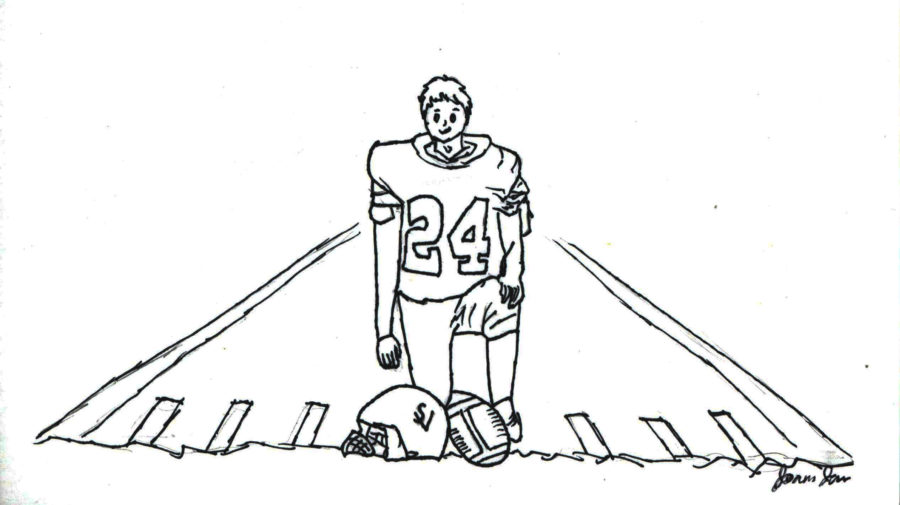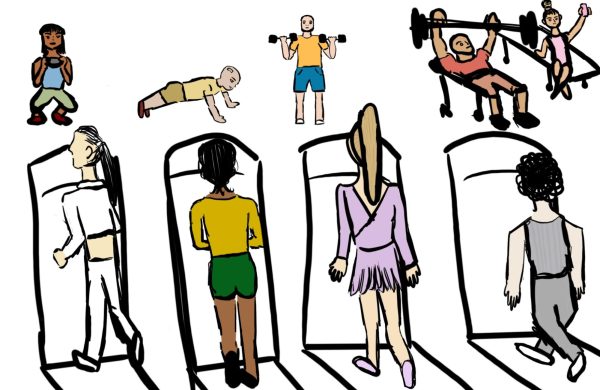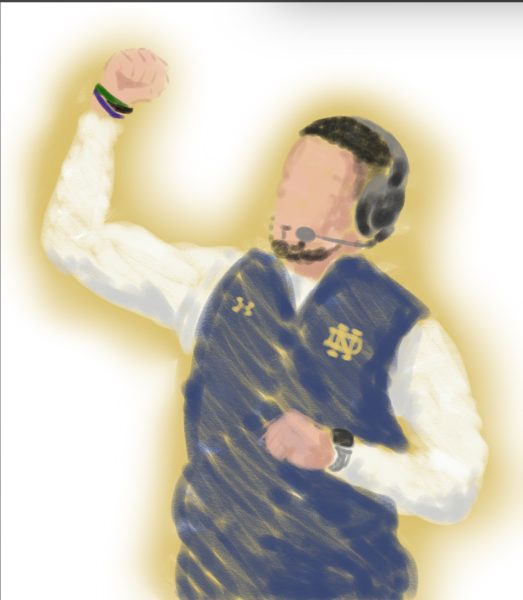Star-spangled protest stir up emotion on both sides
Kneeling during the national anthem: a justified sign of protest or a disrespectful expression of personal views? This issue has buzzed throughout the athletic world. Stars such as Colin Kaepernick and Megan Rapinoe publically protest by kneeling during the national anthem before their athletic competitions.
Ms. Emily Egan, Saint Viator religion teacher, explains that this controversy contains more complications than meets the eye.
“One of the best parts of this country is that we are constitutionally guaranteed the right to protest as these athletes are doing,” said Ms. Egan. “But some of the ethical issues at stake are: one, whether an athlete should use his or her celebrity status to elevate issues to national attention; two, whether it is disrespectful to veterans or not participate in the national anthem; three, whether the issues that the athletes are protesting are just issues to be protesting; four, following one’s conscience in spite of negative consequences; and five, are these protests for the greater good or personal gain?”
Senior Melissa Cortese participates in a military-based program called ROTC.
“In general, I think it’s disrespectful,” said Cortese. “I get that the flag represents the first amendment and freedom of speech, but I feel like the people kneeling during the national anthem are over-exaggerating that right that they have.”
On the other hand, Ms. Egan also mentioned that some veterans support Colin Kaepernick in his decision to kneel during the national anthem; for example, a group of veterans have started the twitter hashtag #VeteransForKaepernick.
“Some veterans think it is disrespectful, while others say that this is exactly the right that they fought to provide us with,” said Ms. Egan.
It can be difficult for an outsider to understand Kaepernick’s and Rapinoe’s actions until they directly address their choice to kneel during the national anthem. Rapinoe explains the injustices that she feels have been imposed on her, which lead her to join Kaepernick in kneeling during the national anthem.
“Quite honestly, being gay, I have stood with my hand over my heart during the national anthem and felt like I haven’t had my liberties protected,” said Rapinoe. “I can absolutely sympathize with that feeling.”
In addition to her own concerns, Rapinoe kneels for Kaepernick’s cause as well.
“I am disgusted with the way [Kaepernick] has been treated and the fans and hatred he has received in all of this,” said Rapinoe.
Ms. Egan stressed the importance of being informed about the issue in order to form an opinion about it.
“I think the Viator community should encourage students to learn about both protesting in and of itself and the issues being protested,” said Ms. Egan. “I sometimes hear students dismiss ideas without taking the time to research the facts or seek someone out that might have a different point of view than their own. How will we ever learn if all we react to is a sound bite or a headline?”
Additionally, Ms. Egan related the issue back to Christian roots by examining Jesus’ journey as a peaceful protester.
“As a Christian community, it is helpful to remember that Jesus was an incredibly influential nonviolent protester as well,” said Ms. Egan. “Martin Luther King Jr. and Gandhi actually studied the teachings of Jesus to come up with ideas for nonviolent resistance. Christianity has a very rich tradition of nonviolent protest.”
Those who support Kaepernick and Rapinoe, as well as those who do not, have valid support for their contrasting standpoints. Therefore, whether or not their actions are a justified sign of protest or a disrespectful expression of personal views falls into judgement of each person who takes a stance on the topic





